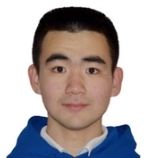Course overview
This programme combines the core elements of electronic engineering with those of computer science, which is the intellectual discipline underlying all aspects of software development.
Combining elements from these two disciplines will equip you with an added breadth of knowledge and greater specialisation. Our graduates are in demand because of their fluency both in the language of electronic engineers, as well as that of computer scientists, enabling you to bridge the gap between software systems and the real world.
You’ll be taught by staff who are actively engaged in research, most with international reputations, ensuring you’ll receive the most up-to-date and commercially-relevant education.
Why choose Computer Science and Electronic Engineering at the University of Liverpool?
- Learn from world-leading researchers, including Professor Charlie Yang (IEEE Fellow in Robotics), Professor Rahul Savani, and Professor Xiaowei Huang, who are pioneers in their respective fields
- Students can choose from many specialised year 3 (final year) modules, ideal for those pursuing MSc degrees in fields beyond their major
- Course content and software tools used in modules are directly applicable to further MSc studies, ensuring smooth academic progression
- Regular talks by professionals provide real-world insights and networking opportunities
- Students can work on cutting-edge projects with strong research connections, enhancing their academic and technical skills
- Exclusive opportunities for hands-on research experience, boosting employability and postgraduate prospects.
What you’ll learn
- A broad educational background in electronics and computing
- Critical thinking
- Teamwork
- The practical application of concepts and theory, always with awareness of their relevance to the real world
- How to take projects from conception, through to design, implementation and operation
- Use of industry standard tools, technologies and working methods.

